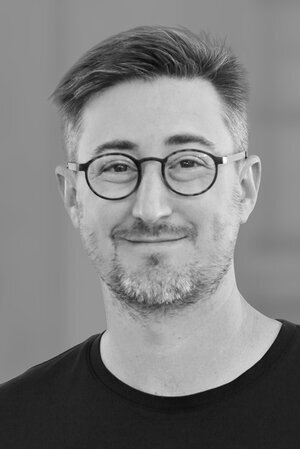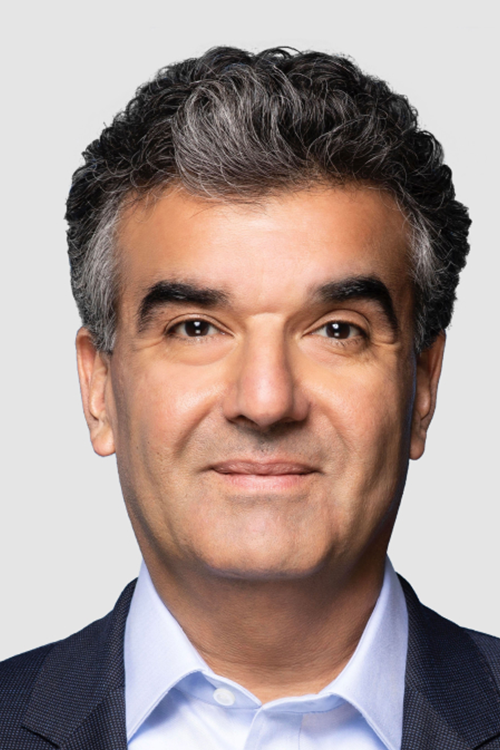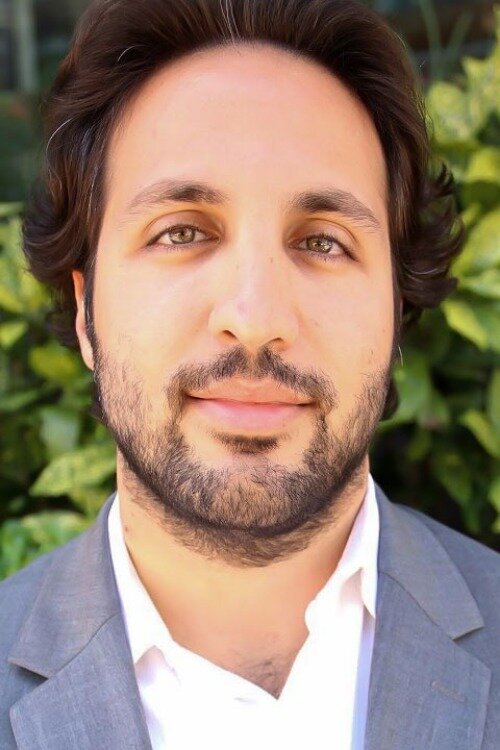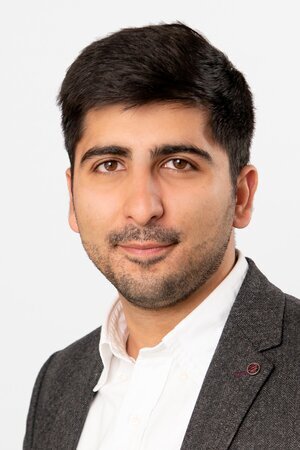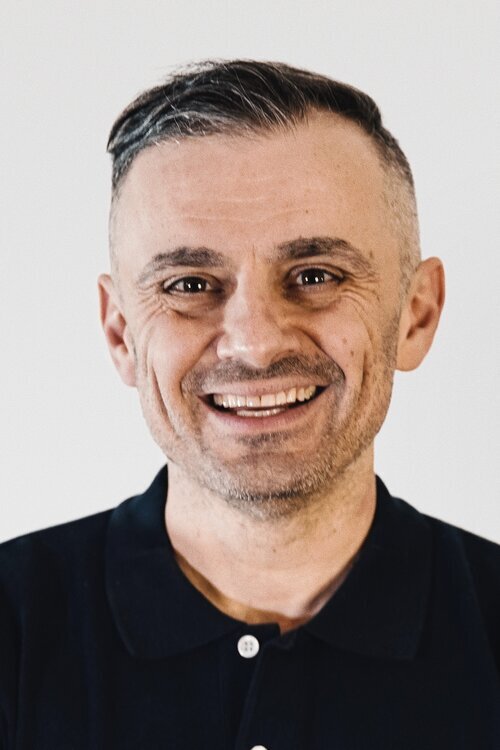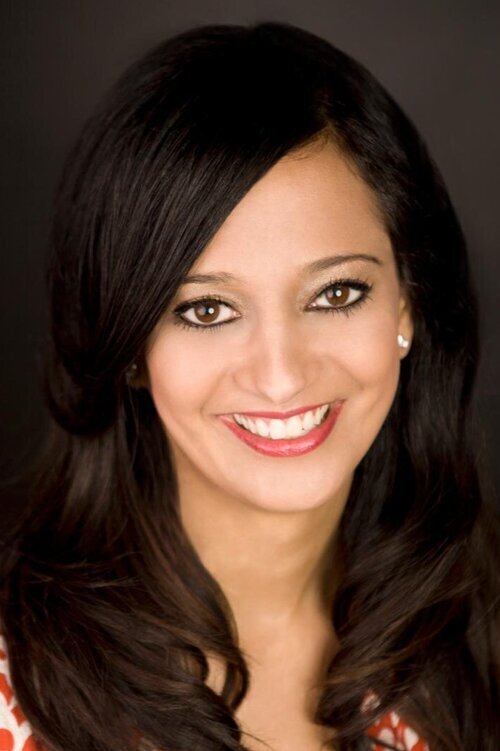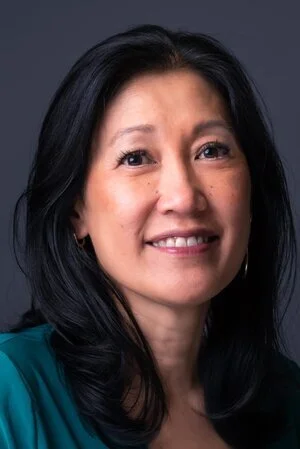“Liquidity aligns incentives for bigger outcomes… People are willing to take more risk if they’re less worried about their individual financial situation. If you provide financial liquidity, founders are more interested in getting the company to later stages, so you drive better fund-level returns.”
Justin Fishner-Wolfson is a founder and the managing partner of 137 Ventures, a growth-stage venture firm founded in San Francisco in 2011. The firm has seen five portfolio companies go public since September 2020: Palantir, Airbnb, Wish, Coupang and Didi. Its largest private portfolio companies include SpaceX, Flexport, Gusto, Workrise (formerly known as RigUp) and Curology.
Prior to co-founding 137 Ventures, Justin worked on the investment team at Founders Fund. He was also selected as a Kauffman Fellow, a program responsible for the development of leaders in global innovation and the venture capital industry. Justin graduated from Stanford University with honors, received a BS in Management Science and Engineering, a MS in Computer Science, and was a Mayfield Fellow.
Justin shares some of his background that led to 137 Ventures and how he learned the importance of offering personal liquidity to company founders. He discusses his approach to venture investing and the state of different tech sectors. He talks about his early and continued investments in SpaceX and the massive transformation SpaceX-operated Starlink will bring in delivering high-speed Internet to underserved areas of the world.
LISTEN AND SUBSCRIBE
MODERATOR
SPEAKER
Justin Fishner-Wolfson
Founder & Managing Partner
137 Ventures
John Darsie
Managing Director
SkyBridge
TIMESTAMPS
00:00 - Intro
02:20 - Background, Founders Fund and 137 Ventures
04:55 - Venture strategy
08:17 - Secondary markets
09:30 - Identifying growth stage investments
11:36 - Primary vs. secondary markets
13:02 - Investments in SpaceX, Starlink and Internet infrastructure
17:27 - Exit strategies and IPO’s
21:07 - Pandemic effects
23:34 - Technology and education equality
25:18 - Mobility sector
26:45 - Satellite-driven technology and changing the government contract model
30:29 - Public-private business dynamics
31:58 - Investing geographically
EPISODE TRANSCRIPT
John Darsie: (00:07)
Hello everyone. And welcome back to Salt Talks. My name is John Darsie. I'm the managing director of Salt, which is a global thought leadership forum, and networking platform at the intersection of finance, technology, and public policy. Salt Talks are a digital interview series that we started in 2020 with leading investors, creators, and thinkers. And our goal on these Salt Talks is the same as our goal at our Salt conferences, which we're excited to resume in September of 2021 here in our home city of New York. But our goal at our conferences and on these talks is to provide a window into the mind of subject matter experts, as well as provide a platform for what we think are big ideas that are shaping the future. And we're very excited to welcome Justin Fishner-Wolfson to Salt Talks. Justin is the founder and managing partner of 137 Ventures.
John Darsie: (00:57)
Previously, he worked on the investment team at Founders Fund, leading venture capital fund as well. He was also selected as a Kauffman fellow, which is a program responsible for the development of leaders in global innovation, and the venture capital industry. Justin graduated from Stanford University with honors, received a BS in management, science, and engineering, and a master's in computer science and was a Mayfield fellow. Today, he resides in the beautiful city of Las Vegas, the fast growing city of Las Vegas. I should add as well, he's not like all those Founders Fund guys who have moved to Miami, but he's found another great home there in Las Vegas. I'm going to be hosting today's Salt Talk, again, John Darsie.
John Darsie: (01:35)
In addition to my role as the managing director of Salt, I'm also a director of business development at SkyBridge Capital, which is a global alternative investment firm with about $8 billion in capital under management, primarily working in the fund to funds industry, but also engage in some of the secondary market investing in the tech sector that Justin has sort of pioneered. But Justin, we're very excited to have you here on Salt Talks. We like to start all of our conversations. I read a little bit about your bio, but we'd love to hear a little bit more about your background, how you decided to go to Stanford, how you got into venture capital and what you learned from experiences at places like Founders Fund that led you to start your own firm 137 Ventures.
Justin Fishner-Wolfson: (02:18)
Yeah, happy to. Thanks for having me. I mean, I think Stanford is, it is kind of the start of everything, at least for me, it's obviously a great school, but I think the fact that I ended up there is substantially the reason why I ended up in technology and venture capital. If you look back at Founders Fund, right? Peter Teal and Ken Howery, they were both Stanford alums, and that was ultimately kind of the original connection to those guys. And how I ended up at Founders Fund kind of at that beginning stage when they were making that transition to be an institutional venture firm. So it was kind of like Stanford is the nexus for a lot of things out in technology, in the Bay Area, in Silicon Valley, and so that's kind of a major reason why I ended up doing what I am doing today.
John Darsie: (03:04)
Very cool. And as I mentioned, you spent time at Founders Fund, but you've quickly identified an opportunity that you thought was too compelling not to pursue. You started your own firm, 137 Ventures. Before we get into what you do at 137 Ventures., I'd like to talk about how you came up with the name, which I thought is a very interesting backstory. So, what is the significance of the number 137 and the name of your company, 137 Ventures
Justin Fishner-Wolfson: (03:28)
The background is my grandfather used to have a seat on the New York Stock Exchange, probably not too far from your offices would be my guess. And that was his enunciator number when he was there, and so they used to signal the traders on the floor with basically a train board. And so that was how we named the firm.
John Darsie: (03:49)
Right. And then there's other numerology involved with 137 that I was reading about that you guys came up with that holds a lot of significance as well, right?
Justin Fishner-Wolfson: (03:58)
It turns out it's one of those numbers that's like somewhat interesting when you talk to engineers, which I tend to do on a regular basis, people will ask you all sorts of things like, "Oh, is that because it's fine structure constant", or other things like that. So, you talk to people and you find out more and more interesting things about numbers over time.
John Darsie: (04:15)
Right. And 137 Ventures that opportunity set that I was alluding to earlier is you provide, you're a leading provider of customized liquidity solutions to founders, investors, and early employees of growth stage, a private technology company. So, you're going to, again, early employees or founders, or even funds that have invested in some of these leading tech companies and saying, "Hey, we have a better solution for you than waiting for an IPO, or even traditional secondary market sales." So what do those sort of unique liquidity solutions that you provide look like? How are they different from traditional secondary sales? And how's your strategy differentiated within the venture world?
Justin Fishner-Wolfson: (04:54)
Yeah. And there are a lot of questions there to unpack it. I mean, at a basic level, and in this even goes back to my time at Founders Fund, we had a very clear belief that liquidity aligns incentives for bigger outcomes. And so if you look at how the industry has sort of evolved, fund size have gotten bigger company outcomes have gotten bigger. And the thing that what you don't want to have as an investor is companies sell early, right? So, if you have these really powerful compounding companies that can grow to be 10, 20, 100 billion dollar outcomes, you don't want to see them ultimately sell the business for maybe a lot of money, but not ultimately the potential of what that business could be. And the challenge you have is, as an investor, you have a portfolio of lots of companies.
Justin Fishner-Wolfson: (05:37)
And so you're willing to take perhaps more risk on any individual company. And if you're a founder of a startup, any of these potential outcomes, if there's a large acquisition, mean a lot of really life-changing money to folks. And the insight was it's not like a magical insight. It's simply that people are willing to take more risks if they're less worried about their individual financial situation. And so if you provide people some amount of liquidity by no means anything close to what they would get upon an exit, they're ultimately much more interested in getting to much bigger stages. And so you drive much better fund level returns, and so I think there's a real alignment of incentives between founders, executives, and venture investors to provide liquidity, especially as companies have stayed private for much longer periods of time than they have in the past.
John Darsie: (06:28)
Right. And do you feel, like you said, you feel like decision-making at the company level improves as people have different liquidity options. Why is that attractive for the investor set to provide those types of liquidity solutions to early founders and employees?
Justin Fishner-Wolfson: (06:45)
I mean, it varies, right? So, I mean, we've literally done business with people who are paying off student loans. I don't necessarily think it's a great use of management's time to be concerned about whether, or not they can afford to service their student loan debt. The salaries in the industry broadly speaking, aren't particularly high. People do own large equity positions, but you don't want them worried if they're going to be able to pay the dinner bill. There are people that obviously gotten married they might have a kid, they don't necessarily want to live with roommates, right? San Francisco is expensive. New York is expensive. And these are, I think, reasonable things that allow people to be more productive at work. And so I think that's a good use of time and money.
John Darsie: (07:25)
Right. And as I mentioned earlier, there's been this massive explosion in private secondary market activity. At SkyBridge, We're involved in the space, it's public. And we can disclose the fact that we've invested in a handful of growth stage fintech companies, including Klarna and Chime being examples that we both invested in our funds and raise SPVs for some of our key relationships to invest in those products. Do you worry at all that that secondary market valuations are getting more expensive and sort of taking some of the meat off the bone? We've seen IPO's sort of act as liquidity events not particularly great entry points in some cases, certainly not the case for a lot of names in the last 18 months, but do you worry generally about secondary market, private valuations getting to a point where the opportunity set isn't quite as attractive?
Justin Fishner-Wolfson: (08:17)
I mean, I think the relationship between secondary prices and primary prices, and they're highly correlated obviously, right? So, companies are raising money at some valuation that's going to affect people's perception of what the company is worth. And that's going to find its way into the secondary market. I mean, in terms of your question, I think is so therefore it's sort of broadly evaluation question, right? Are companies more expensive today than they were in the past? I think on average, that's probably correct, if you look at the multiples that people are ascribing to a lot of the companies that you're talking about, but averages hide very important data. And so there's going to be companies that are above that average, they're going to be companies that are below that average. And I think for ourselves, we're trying to find companies that are reasonably priced, given the fundamentals of the business. And you're looking for very high growth, because the one thing that, broadly speaking, makes up for valuation mistakes is very high growth because you can survive [inaudible 00:09:14] ...impression in that situation.
John Darsie: (09:16)
Right. So that's a good segue and you touched a little bit on it in that answer, but what characteristics in terms of levels of growth, levels of maturity and other aspects, do you look for when you're identifying growth stage investments to offer these types of liquidity solutions?
Justin Fishner-Wolfson: (09:32)
And most of our portfolio is growing by 100% hundred percent, or higher, right? I mean, that's a large portion of the portfolio, especially when we're making initial investments in things. And what we care about in particular is trying to identify businesses that have some kind of long-term defensibility. One of the challenges in the world as a whole is there's a lot of capital out there. And so what you don't want to have is investment in a potentially really great business, have other people notice that it's a really great business, and then have people fund those other fast followers, and compete margins away, which then will result in multiples compressing. And so we're looking for businesses that we think have business models that are defensive when you think that these are well understood concepts, network effects, information asymmetries, economies of scale, things that allow businesses to maintain their margin profile over an extended period of time.
John Darsie: (10:25)
Are there certain sectors that you think more often embody those characteristics that you've been drawn to over the years? Or is is it pretty broad and you guys cover a wide variety of sectors?
Justin Fishner-Wolfson: (10:36)
Yeah. I mean, I think we cover a very large number of sectors. I mean, obviously I think we're, well-known for the SpaceX investment, but you look at marketplaces, I mean, you could be an Airbnb, or you could be in work [inaudible 00:10:47] I mean, they're very different marketplaces, but yet those marketplaces have very similar dynamics. There's a lot of information asymmetries and enterprise businesses, right? So, for example, Gusto is providing payroll and benefits to small, and medium sized businesses, but then they're rolling out financial services for consumers who are, another name for consumers are employees of small and medium sized businesses. And so they can leverage that data to reduce the costs for people. And I think that's a very interesting value proposition. [crosstalk 00:11:17]...in a lot of different industries,
John Darsie: (11:19)
Right. And you primarily do these customized liquidity solutions in the secondary market, but you do sometimes participate in primary funding rounds. How do you determine when you want to participate in a primary round versus focusing on secondaries?
Justin Fishner-Wolfson: (11:37)
I think what we do in the secondary market is... It's more differentiated. There are fewer people who do what we do. There are obviously many people who are primary investors. So, we're more agnostic as to how we're participating is simply that there are fewer people who provide structured transactions in the secondary market. So we're happy to use that as a better wedge to get into companies that we think are compelling, but fundamentally between those two opportunities, we're not going to say no to a company that we're very excited about.
John Darsie: (12:08)
Right. And you mentioned SpaceX before. It's one thing that 137 Ventures is very well-known for when you were at Founders Fund, you played a significant role, from my understanding, in having Founders Fund increase its allocation of SpaceX, at 137 you've accumulated a significant position in SpaceX. What about SpaceX got you so excited. And what is the opportunity set in space? Obviously, we've seen a lot of public relations around space recently with Richard Branson and Virgin Galactic going up into space. Jeff Bezos outdoing him by a couple of hundred thousand feet from what I remember, but obviously SpaceX has been on fire in terms of launch the Starlink Network, as well as its NASA missions. So just what is the market? How big is it and is it more based on tourism? Is it more based on industrial capabilities, but what does the market look like in space?
Justin Fishner-Wolfson: (13:02)
I think the joke is that it's expanding, right? But you look at Bezos, you look at what brands do. And I mean, I think it's great that they're getting people excited about space. I mean, if you think back to putting a man on the moon, I think it was a great unifying thing for the country. It was an exciting thing and had a lot of really important scientific discoveries that ultimately translated into people's lives. I mean like Velcro, right? I mean like things that people don't necessarily think of, that came from these developments. So, I mean, I think it's great what everyone is doing. I mean, SpaceX for the most part is really in a different business. So, you look at launch. I mean, the things that matter in the world, it's like all the earth observation, satellites, GPS, the things that really keep modern society working like this all floats above us in space.
Justin Fishner-Wolfson: (13:49)
And so SpaceX's launch capabilities are really second to none. I mean, they've built very, very reliable reusable rockets in a way that really no one imagined even five years ago. So, I think that's been a real transformation. You mentioned Starlink they're on basically the verge of this is all going to become, I think, very clear to everyone over the next six to 12 months, that anywhere on earth, you can get high-speed low-latency internet, as long as you have power and you can see the sky, the internet will be available to you. And that's an incredible change as opposed to having to dig fiber in lots of very difficult, expensive places. So, that's just like one example of how, I mean, yes, it's about space, but really it's providing internet service. And so there's all sorts of interesting things that are going to happen from this.
John Darsie: (14:36)
Yeah. Starlink is particularly interesting to me. Obviously the reusable rockets are a massive innovation and SpaceX is at the Vanguard of so much great innovation that's taking place related to space, but Starlink has a very clear addressable market. Just how much is it going to disrupt traditional telecom? I mean, I live today in Long Island when I'm taking the Long Island Railroad home, there's long patches of the train ride where I don't get cell service. The house I grew up in, in the Raleigh-Durham area in North Carolina, we struggled to get reliable internet and phone service. There's massive swats of not just the United States, but obviously around the world. Just how big is that market that Starlink is addressing and how big can that business be?
Justin Fishner-Wolfson: (15:17)
I think the market is actually huge, but it's really not targeted towards the urban centers, right? Because they're building a network that functionally covers the entire globe, they're really going after in some sense, the places that the traditional incumbents have ignored. And the reason that they've mostly ignored them is that it's very expensive to provide service there. And so what Starlink changes is all the places that used to be very hard to provide service are now the same as any place that was easy to provide service. And so sure they're going to pick off it whatever. They'll have some customers in Manhattan, but they're also going to have customers in lots of rural geographies in the US. There are many underserved populations, whether or not it's some of the Native American tribes that have traditionally and historically been underserved by all of these players.
Justin Fishner-Wolfson: (16:03)
So, I mean, like there's a lot of places that this now becomes easy, and the market's huge. I mean, if you look at some of the data coming from the US government, there are tens of millions of Americans who don't have access to high speed internet. And we're just talking about America. Like this is a global network. So you start talking about Europe, and Africa, and Asia, and everywhere in the world can be served by this network. And so I think it's very understandable how they get to multiple millions, if not tens of millions within the next years of subscribers.
John Darsie: (16:34)
Right? Yeah. I mean, it could fundamentally change society. We've seen this redistribution geographically within the United States, and in some cases around the world of working populations and some exit us out of the Bay Area and places like that because people realize they can work effectively in different parts of the country, different parts of the world. So it'll be interesting to se how a Starlink sort of affects society in that way. But I want to talk about exits. So when you're involved in private companies, they IPO, there's often an IPO pop, or they rally in the first few months after they go public. And obviously there's a different life cycle to every investment. But as you look at exiting these positions, is this is something where you take it at a company by company basis, in terms of evaluating your exit? Do you look to have a specific plan with every one of your investments after they get public liquidity? Or how do you look at exiting these positions?
Justin Fishner-Wolfson: (17:28)
And we certainly think about things on a company by company basis, right? The facts may always lead you to kind of a different conclusion, but because we're trying to invest in companies that we think can compound for extended periods of time, the private to public transition is more of a an evolution of the company. It doesn't change the fundamental business that they're in. And so while that is an opportunity for us to get liquidity for our investors, and we obviously care about that because funds, venture is a long business. I don't necessarily think that there's something magical that happens upon an IPO that suddenly means you don't like the business anymore. It's simply a point where it's easier to get liquidity. And I think just as a vague sight of that, that I think is a little bit funny. If you think about the public markets 99.999% of all transactions are secondary. Right? In fact, the public markets kind of think primary is a weird thing, right?
Justin Fishner-Wolfson: (18:23)
It doesn't happen that often and generally, they're sort of against it when companies start to raise more money. And it's exactly the exact opposite in the private markets, right. Primary is sort of the normal, and secondary's a little weird. I just always thought this distinction was somewhat funny. And I think it's the same thing as like, when there's an IPO transition, it doesn't actually mean that anything about the company has changed, except that the shares are now easier to trade. That that's all that really happened.
John Darsie: (18:48)
Yeah. And I mentioned sort of first day pops, or recent rallies that we've seen post IPO in some big tech companies, several of which you've had exposure to, including Palantir, Airbnb DoorDash is another one that had a significant rally. And they've certainly paired their gains in subsequent months. But in your view, why are we seeing, in some cases, such volatility or such ferocious rallies, post IPO, is this a matter of bankers mispricing the deal? Is it a matter of sort of strategically creating the right size float? Or why do you think we're seeing sort of asymmetries and how companies react once they enter public life?
Justin Fishner-Wolfson: (19:27)
I think it's hard to know what the right price is and what I've realized having kind of thought about this over all these liquidity events relatively recently is the amount of information that people get when they're investing in a private company is so much larger than what public markets investors receive. I mean, if you go public, you put out an S1, maybe you do some investor meetings, you go on a road show, whatever. Maybe you're going to put out some quarterly information, but most private investors would say, "Where's the rest of the diligence packet?" Right? And while I certainly think you can be a well-informed public markets investor. I think what people are doing is they're taking earnings calls over every quarter, they're building some trend lines, they're building their own models.
Justin Fishner-Wolfson: (20:11)
And they're refining that over time. And I think to look at a company on an IPO and think that all the public markets guys are not only going to get it right, but even have all the information to get it right within a day, I mean, that seems very hard to imagine and to expect of people. So, you're going to see volatility, obviously, as over time, people understand these businesses better and better. And then I think you'll find out what the real price is for all these companies are. And sometimes the market's going to be high and sometimes the market's going to be low and eventually it will be correct, but eventually it could be awhile from now.
John Darsie: (20:43)
Right. Are there any other companies, obviously, you've been involved and exited a lot of extremely exciting tech companies. Are there any in particular today, whether it be, you can talk sectors, you can talk individual names that you are most excited about in today's market and sort of a post pandemic world. Obviously the world has been shaken up by everything we've seen in the last 18 months. Are there any sort of theses that you've grown even more excited about?
Justin Fishner-Wolfson: (21:07)
The thing that I've been pleasantly surprised that we've seen play out in our portfolio, but I think has been true more broadly is there's just been this massive acceleration of tech adoption. And so things that we thought were going to take five, 10 years all got adopted in 12 months. And a lot of the companies also that we thought had the potential to be really impacted by the pandemic, think of Flexport, right? Is global trade going to be what it was. And then it turned out that shipping was really hard, logistics were really hard. There were major constraints on the system. Prices went up, and Flexport really shined because they had much better software for their customers. They were able to get more things done. They were able to allow people to plan as well as anybody could in that environment, even Gusto, right?
Justin Fishner-Wolfson: (21:57)
Like they're dealing with small and medium sized businesses in the US, and we obviously were somewhat concerned because those were some of the most impacted businesses. But you saw relatively quickly that their business was going to be okay. They did a lot of great things to help people, help their customers apply for PPP loans, and kept a lot of people in business that I think would have otherwise struggled to deal with the government. There were some good programs, but it's never that easy dealing with the government and filling out all the paperwork correctly, and making sure that things happen. So I was pleasantly surprised with how all of our companies reacted to the pandemic, and then ultimately, broadly speaking, how they benefited from that adoption cycle that we're going through right now.
John Darsie: (22:42)
Right. We had a great Salt Talk a couple months ago with Michael Moe, obviously a pioneer and ed tech. Talking about education. You guys have a position in a company called Course Hero. We talked about Starlink in terms of leveling the playing field in terms of access to broadband and things like that. How do you think education is going to evolve as a result of the pandemic, even trends that we were seeing before the pandemic, in terms of you have this great piece of paper that's extremely valuable. And the network you built from that piece of paper at Stanford is certainly probably even more valuable than the paper itself. But how do you think, given the massive rise in cost of education, this huge differential in the quality of education you can get in certain locations, how do you think technology is going to affect that? And do you think the pandemic sort of accelerated some of that change in terms of democratizing access to quality education?
Justin Fishner-Wolfson: (23:34)
I think it's been a mixed bag. I mean, you mentioned Starlink and a lot of this stuff really is the internet, right? So Starlink bringing the internet to people that didn't have it, is so important because the internet is not just education, it's also healthcare, right? It's also jobs. So all these things are related, but specifically in education, right? People, governments sent kids home from school and said, well, you can learn online. Except there were many, many kids in the US, and throughout the world, who didn't have access to internet that was fast enough to do that. They didn't have access to computers or tablets that they could use to actually go through classes. So, I think it's been a mixed bag, but it does bring with it this potential.
Justin Fishner-Wolfson: (24:15)
And I think more people are focused on this, where you really can do more and more of these things on the internet and bridging that digital divide, I think is more important. And I think it was always something that people thought about. And now they understand that you can bring everyone into the mainstream economy, if you can give them internet service, and the resources to learn, get healthcare. I mean, even our health care message, all these direct to consumer healthcare businesses. Like Curology, 30 Madison, [inaudible 00:24:44] club. I mean, you don't need to go to doctors for a lot of things. You can deal with that stuff remotely. And I think that's very exciting.
John Darsie: (24:51)
Yeah, absolutely. I want to talk about mobility for a second. So you have several investments in the mobility space ranging from scooters to car sharing and even had an investment in DiDi the Chinese ride sharing company. How do you think whether it's pre pandemic or post pandemic, how do you think mobility is evolving and what will that look like in 10 years? And how does your investment portfolio within the mobility space reflect your views on that market?
Justin Fishner-Wolfson: (25:17)
I mean, it's been a little bit of a mixed bag. I mean, obviously the pandemic shutdown mobility in a very broad sense substantially, so that affected different people's businesses in better or worse ways. But I do think that the underlying trend of people not needing to own really large, really expensive assets makes sense, right? So, that part of the business, I don't think it's going away. I think there's broadly speaking the standard trend towards urbanization. So, all of these business models make a ton of sense. Obviously, the pandemic was very disruptive, but you've seen them, quite frankly, to my earlier point, they bounced back much faster than even I would have expected. if you would have asked me last year to to look at what's going on with Turo, or Get Around, or Uber or any of these companies, like the businesses have really bounced back in a way that I got to say I was somewhat surprised.
John Darsie: (26:09)
Right. You have an investment in a company called Planet that takes pictures of the earth every day. And I've talked with some other investors who have investments in Planet, and some similar type ventures, but Planet and other satellite photograph services recently discovered the Chinese were building new missile silos, nuclear missile silos in certain parts of the country. What has Planet and other companies of its type made possible in terms of how we're able to monitor what's going on around the world and how are people using that in creative ways?
Justin Fishner-Wolfson: (26:45)
I mean, these things were never possible before all of the cost reductions in both launch and satellite and I think that, that's what's enabling this new generation of technologies to do what you're describing, where Planet really can take a picture of any spot on earth on a continuous basis once a day. And when you can start to see that you can understand what change is happening. And I think that's really the interesting thing. So you can see what's happening in the rain forest. You can see what's happening in China. You can see, and that helps for disaster management, right? Obviously, if there's been a natural disaster, knowing what's changed on the ground could be incredibly helpful to all of the workers who are trying to get to people.
Justin Fishner-Wolfson: (27:25)
So, it shows up in all sorts of interesting ways, whether or not it's farming, whether or not it's environmental, whether or not it's disaster response. And it only works if it's economically possible, right? I mean, the US government used to do these things and they could task a satellite and look at something once in a while. And that was an incredible change from what it was before. And you're just sort of seeing the cost curve come down on all electronics. And if you can launch things pretty cheaply, you can replace the electronics on a regular basis, which means you're always using the latest and greatest.
John Darsie: (28:01)
So, you also have, in terms of the di the defense sector, you have an investment in a company called Anduril, that is developing all kinds of novel technologies around defense. That is certainly courting government contracts, and things like that. How are they taking an approach that's disrupting sort of traditional defense companies and contractors?
Justin Fishner-Wolfson: (28:24)
Yeah. I mean, I think they're following sort of in the footsteps of what SpaceX and Palantir have sort of pushed the government towards, which is that you don't need to always specify everything that you want, and then have people build it for you custom. There are things that can be commercially viable that make it less expensive, and you can buy products off the shelves, right? And I think that it's this changed from cost plus manufacturing as a business and a mindset to we're going to build products that solve a problem that has a certain value to people.
Justin Fishner-Wolfson: (28:58)
And if we can do that well, then we've got a really great business. And I think it's a good change for the government to buy off the shelf products based on their value and not try to design everything themselves. I think that's a very hard problem. And I think for unique stuff, it totally makes sense. When you're sending a man to the moon, no one knows how much that costs, right? We've never done it before, but it's been a long time, and after 40, 50 years, we should find a commercial solution to this stuff.
John Darsie: (29:26)
Right. We know how to do it now. It's just a matter of being able to do it efficiently a high number of times.
Justin Fishner-Wolfson: (29:33)
I mean, look at smartphones, right? I mean, you don't need to specify this Apple and Samsung. These guys, they're going to keep improving these products and they're going to sell hundreds of millions of them. And that's what's going to drive the cost down for everybody, including the government.
John Darsie: (29:48)
Right. Yeah. We talked a little earlier about your time at Founders Fund. Peter Teal, obviously sort of the most prominent partner there at Founders Fund. Obviously he's not the only one making decisions, but he has sort of a libertarian view of the world. He believes that private sector has the ability to produce things, including things that you're talking about with Anduril more efficiently. What's your view of the world in terms of how public and private work together, you touched on it a little bit talking about defense companies and space companies and things like that. But what did you take away from your time working with Peter at Founders Fund? And do you share any of his worldview on that side of things?
Justin Fishner-Wolfson: (30:29)
I mean, obviously, it took a lot of things away from my time at Founders Fund my time with Peter, I think we share similar views of what companies are interesting, what companies are defensible, what companies will ultimately be incredibly valuable businesses. So I think a lot of that is the same. I mean, my views would be their market solutions work for a lot of things. And that ends up being better, faster, cheaper for everyone. I mean, obviously there are values to the government. There are things that the private sector is not going to do, but we should figure out where those lines are, and they constantly move. And the more things the government doesn't have to do, I think those things are better served by private businesses, by the market.
John Darsie: (31:13)
Right. And last question I want to ask you before we let you go relates to geography. So you had an investment in DiDi that I alluded to earlier. There's been a lot made of China's crack down on tech, starting with Alibaba through to Tencent. Now, DiDi delisting it from the app store. We could talk about China as its own distinct entity, how are you looking at allocating capital to China? We had some deals come across our desk based in China that we certainly took a hard look at, but had reservations about. How do you look at China and then geographically, are you focused on the United States? Or how do you look at places like Europe, places like emerging markets, whether it be Africa, Southeast Asia? Geographically, where are you focusing your investments and how do you think about geography?
Justin Fishner-Wolfson: (31:59)
And for us, we've always been focused on the US the vast majority of our investments are here. Partially, that's just driven by we're a relatively small organization, and this is where our networks and our relationships are. And it's obviously the place that we understand the best. We've been willing to invest internationally. I mean, obviously you mentioned the DiDi investment. We invested in Spotify. We've been willing to invest elsewhere, broadly speaking, that's when we've had a very good relationship with the company. We've had friends who have brought us into opportunities. So we feel comfortable with why we're seeing them in the first place. China is its own unique place, in a way that I think India is also its own unique place, right? Europe is different than the US, but we share a lot more similarities. The markets are a little bit more structurally similar, so we're totally open to investing internationally, but we're somewhat hesitant to do it in place just because we don't know those areas as well. And so we will, generally speaking, do that when we feel we've got some friends around the table that make us feel more comfortable.
John Darsie: (33:02)
All right, Justin, well, it's been a pleasure to have you on congratulations on what you've built at 137 Ventures. I think you have an incredibly exciting portfolio. You've obviously exited a lot of the hottest tech companies that we've seen come to market in the last five to 10 years and best of luck with all your future growth.
Justin Fishner-Wolfson: (33:21)
Thank you. Very nice talking with you.
John Darsie: (33:23)
And thank you everybody for tuning into today's Salt Talk with Justin Fishner-Wolfson of 137 Ventures. Just a reminder, if you missed any part of this talk or any of our previous Salt Talks, you can access them all on demand on our website at salt.org/talks or on our YouTube channel, which is called Salt too. We're also on social media. Twitter is where we're most active at Salt Conference, but we're also on LinkedIn, Instagram and Facebook as well. And please spread the word about these Salt Talks. We think people like Justin providing incredible access to private market opportunities, that a lot of investors didn't have access to when Justin started doing what he's doing. So thankful for people like him and how he's opened up these markets. But on behalf of the entire Salt team, this is John Darsie signing off from Salt Talks for today. We hope to see you back here against soon.

